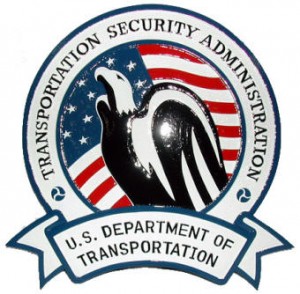 I’ve been using Google+ for a little while now (being relative since it’s only a month old) and the way I see it, Google+ could radically alter the Autism Community online forever… that is… if it really does take off and people use it.
I’ve been using Google+ for a little while now (being relative since it’s only a month old) and the way I see it, Google+ could radically alter the Autism Community online forever… that is… if it really does take off and people use it.
Let me tell you a little bit about how it’s different, some very powerful ways to use it and a couple of surprises at the end that I think will really intrigue you.
The advantage over other social networks?
Facebook lets you share with friends. You can start to branch out a bit but really, the people you reach on Facebook are people you’ve already reached in some way.
Twitter on the other hand is a bunch of connections with people you don’t know. This allows for a much larger network, obviously, however your network is your network. That is to say… what you say is answered by your network. Other people don’t get to see each other’s replies.
So if I ask for the answer to world peace and someone answers me….
- Facebook: I see it, my friends see it and my friends see my friends replies.
- Twitter: Only I see it. No one sees that reply come in unless they follow me and the person who answered it.
Google+ is entirely different in that you can circle (a lot like following on Twitter) so you can pick and choose as you wish, like Twitter. The difference is that when someone replies to me, everyone gets to see that reply. The secret to world peace just went viral!!
Let me put it this way… you may only be in 3 people’s circles… but if I am in 200 people’s circles and ask for the answer to world peace and you answer, the other 199 people in MY circles get to see that answer.
From there, those 199 people can circle you, you wise person with such a great answer! Think about it, no matter how quiet of a person you may be… that answer never would have been heard because you don’t know the secrets to social networking and self marketing but now, you just gained an audience of 200 people that you didn’t have before simply by answering me.
The potential for network and community building is astronomical compared to the other networks. And your brilliance, no matter how quiet, has a chance to shine.
So what are circles? How should I use them?
Think of circles like Twitter’s lists… it helps you to sort the people you follow into different categories. Think of them as “circles of friends” where you may have a circle of co-workers, a circle of family members and so forth.
The thing to remember is that some people fit into multiple circles. A co-worker could be a family member. So that person would fit into both circles.
In this way, when you share something on Google+, you can choose which circles get to see it. For example, a family reunion update would be shared with your family circle and not your co-workers.
How do I use Circles?
I will give you a run down of the circles I use, as they pertain to autism. This is my list of circle names:
1. Autism
1.1 Autism Parents
1.2 Has Autism
1.3 Autism Advocates
1.4 Autism Charities
1.4.1 Autism Speaks
1.4.2 National Autism Association
1.4.3 Autism Society
1.4.4 Autisable.com
This may look a little strange at first but let me explain.
First of all, EVERYONE that is involved with Autism is put into circle 1. From there, if they’re parents, I put them into circles 1 and 1.1. If they have autism or aspergers, they go into circles 1 and 1.2. If they are advocates (don’t have autism or a child with autism), they go into 1 and 1.3. If they are a charity (as of this writing, I think only Autism Speaks has a Google+ account), they go into 1.4. If they’re an employee of an autism charity, let’s say Autism Speaks, they go into circles 1, 1.4 and 1.4.1.
Now, if I want to share something with only Autism Speaks employees, I share with circle 1.4.1. If I want all autism charities and their employees to receive it, I choose circle 1.4. If I want everyone involved with autism to read it, I choose circle 1.
By breaking it down into sub categories like this, you can include everyone, sub groups or specific people. It saves me from having to select 5 circles when I want to share with everyone. I can just choose one circle this way. Like wise, I can share with just fellow autism parents and not bother others, if it’s parent specific.
Wait, autism charity employees?
That’s right, I have started comprising a list (it’s small right now) of people of interest on Google+ right now.
Google+ gives us an unprecedented ability to reach people on a much more personal level. A huge amount of Google+ staff have profiles, Mashable’s writing staff have profiles, even Facebook’s top staff have profiles!
And so it is with Autism charities as well. Here are some notable people to circle:
Autism Speaks:
Marc Sirkin – https://plus.google.com/103356743690962786437/posts?hl=en
Peter Bell – https://plus.google.com/114190864043437006493/posts
Allan Benamer – https://plus.google.com/114400648902272848682/posts
National Autism Association:
Wendy Fournier – https://plus.google.com/101658238903147028726/posts
Autism Society of America:
Amanda Glensky – https://plus.google.com/116516874708262899866/posts
Autisable.com:
Joel Manzer – https://plus.google.com/115997835837459639477/posts
If you know of more, or if you are an employee of an autism charity/organization/company looking to make connections, please contact me so that I can add you to the list.
Hangouts
Hangouts are super cool webcam chats where, instead of talking to one person, you can talk to up to 9 others! And it is quite the intelligent system where everyone is shown in a thumbnail but the person making the most noise (ie, talking) is shown in the main window (large webcam image).
I’ve already approached some people and have found some interest in doing a regular webcam chat where people can ask questions, get support and even talk to notable people such as the staff of autism charities.
Sorry, you will need a webcam to participate in this and yes, we’re going to have to see you… but we’re all tired, we’re all needing some support and having some questions so there’s no need to be shy.
Look for this to start happening soon!
Let’s start networking and grow this community
If you were to view my “about” page on Google+, you’ll see a link to one of my updates (https://plus.google.com/106357905229054139137/posts/3bYSbVAqk8V). Basically, I created this as a way for people (you) to introduce yourself and also as a way of knowing how you fit into the autism community.
You certainly don’t have to rush there to be a part of the group or anything but it gives you a good idea of how to begin.
Introduce yourself, put a little bit into your bio, as you would on Twitter, so that people know how to circle you. You have to remember that this isn’t a “friend” network… also, people might not even recognize you since you’re “encouraged” to use real information rather than just a twitter username there.
So if you sign up and don’t use a familiar avatar or username, people might notrecognize you and know how to circle you.
And don’t be shy about circling others. If you see people commenting, if you see people sharing… circle them. The bigger and better the community, the better we can grow and support each other.
By the way, you can find me here: https://plus.google.com/106357905229054139137/posts
 Earlier today, I wrote about my concerns over how “Autism symptoms may make the TSA think you’re a terrorist“, in which their new “behavior screening” process is essentially them making conversation with you and looking for any “suspicious behavior” which may indicate that you are hiding something.
Earlier today, I wrote about my concerns over how “Autism symptoms may make the TSA think you’re a terrorist“, in which their new “behavior screening” process is essentially them making conversation with you and looking for any “suspicious behavior” which may indicate that you are hiding something.











